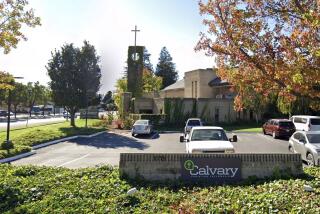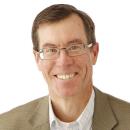Federal judge denies bid from Chula Vista church to reopen
CHULA VISTA — A federal judge in San Diego on Friday denied a request from a Chula Vista church for a temporary restraining order against the state that would allow it to hold in-person services, which have been banned since March under the stay-at-home orders issued by the state to combat the coronavirus pandemic.
U.S. District Judge Cynthia Bashant said the orders do not discriminate against religion and are a legal use of state authority in the time of a health emergency.
The South Bay United Pentecostal church had sued Gov. Gavin Newsom and other state and county officials over the orders and Newsom’s plan to gradually reopen the state. Under that plan, in-person religious gatherings would be allowed in the third stage of a four-stage program. The state is in the second stage.
The lawsuit contended that the orders and the plan have many exemptions for some industries and activities but unconstitutionally discriminate against religious groups by not allowing them to hold in-person services and requiring their places of worship to remain closed.
Paul Jonna, a lawyer for the church, said that factories are allowed to reopen in the second stage of the plan, but churches are relegated to the third stage, and there is no explicit finding of what the difference is between them.
“What’s the factual or scientific basis for distinguishing factories from churches?” he said.
Deputy Atty. Gen. Todd Grabarsky said the reopening plans were based in part on risk factors for each group or entity. He said the plan was a “work in progress” that could be altered depending on the progress of the COVID-19 pandemic.
He also argued that in times of health emergencies states have wide latitude to issue orders to combat the emergency and curtail some rights. He said the orders are not a complete and total ban on any kind of religious services.
Newsom’s order allows for services conducted using technology such as livestreaming or other methods, and the state amended the order last month to allow drive-in services so long as social distance is maintained and people do not come in contact with one another.
In the end, Bashant ruled the reopening plan did not discriminate against churches. She said it was a law that was not aimed at religion but was neutral and being generally applied to many aspects of life in the state. In-person church services were in the third stage of the plan not out of hostility to religion but because the manner in which services are held — large groups of people sitting together in a closed environment for a long period of time — poses more risk.
She concluded the reopening plan overall was a rational and nondiscriminatory order that was based on the state’s overriding interest in stopping the spread of the virus.
Moran writes for the San Diego Union-Tribune.
More to Read
Sign up for Essential California
The most important California stories and recommendations in your inbox every morning.
You may occasionally receive promotional content from the Los Angeles Times.










